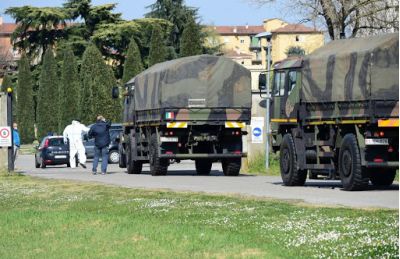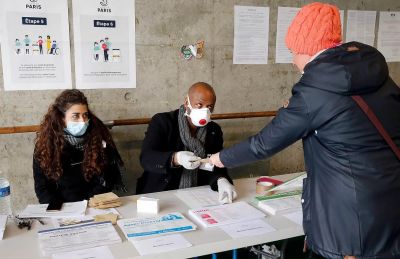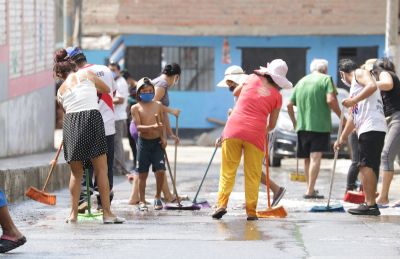-
Comparative Covid Response
Crisis, Knowledge, PolicyComparative Covid Response: Crisis, Knowledge, Policy (CompCoRe) is a comparative study of national responses to the COVID-19 pandemic from a science and technology studies (STS) perspective. Led by Stephen Hilgartner (Cornell University) and Sheila Jasanoff (Harvard University), the core research team comprises researchers from five continents and sixteen countries.
-
Comparative Covid Response
Crisis, Knowledge, PolicyComparative Covid Response: Crisis, Knowledge, Policy (CompCoRe) is a comparative study of national responses to the COVID-19 pandemic from a science and technology studies (STS) perspective. Led by Stephen Hilgartner (Cornell University) and Sheila Jasanoff (Harvard University), the core research team comprises researchers from five continents and sixteen countries.
CompCoRe is one of the largest qualitative comparative projects investigating national responses to the COVID-19 pandemic.
The intellectual framework for CompCoRe is grounded in theories and methods developed in the field of science and technology studies (STS). Team members include senior and junior STS and legal scholars, as well as, activists and policy analysts. The diversity of the country team members reflects the scope and breadth of expertise and perspectives being contributed to the project. Teams from Core countries work collaboratively to define research questions, generate data, share analytic insights, and produce academic papers, policy briefs, and other forms of analysis.
Read moreAdditionally, teams from several countries and networks participate in the CompCoRe initiative as Affiliates. Affiliates benefit from participation in All Teams meetings, access to select research outputs produced by the Core teams, and technical support for funding applications. These teams contribute insights from their own research and contribute a limited amount of data towards the bigger project.
This project is supported by a RAPID Collaborative Grant from the United States Science Foundation and additional funding from Schmidt Futures foundation. Read more about the history of the project below or explore the participating countries and researchers.
-

London, UK
-

Ipanema beach, Brazil
-

Bergamo, Italy
-

Berlin, Germany
-

Singapore
-

Durgapur, India
-

Shenzen, China
-

Taipei, Taiwan
-

South Africa
-

Bondi beach, Australia
-

Malmö, Sweden
-

Vatican City
-

Paris, France
-

Lima, Peru
-

Los Angeles, United States
-

Seoul, South Korea
-

Tokyo, Japan
-

Vienna, Austria
-

Amsterdam, Netherlands
History
The CompCoRe project was conceived by Stephen Hilgartner, Cornell University, Sheila Jasanoff, Harvard Kennedy School, and their long-standing colleagues and collaborators, affiliated with the Science and Democracy Network (SDN). As the Covid-19 pandemic ravaged the world in April 2020, Hilgartner and Jasanoff applied for the National Science Foundation’s Rapid Response Research (RAPID) Grant on the Covid-19 pandemic. They launched the project on May 1 after receiving NSF funding.
The project aimed to answer an enduring question that long preoccupied STS scholars and policy makers: what makes expert knowledge credible, legitimate, and reliable for use in public policy? In the context of the pandemic, the project broke this broader question down into four lines of inquiry:
- how the pandemic is framed as a policy issue;
- what sources of scientific and policy advice policy makers rely on;
- to what extent and how effectively governments serve as synthesizers; and,
- disseminators of knowledge and technical capacity; and what knowledge claims and policy concepts became subjects of debate.
To pursue these lines of inquiry within a comparative framework, Jasanoff and Hilgartner assembled 10 country teams from 3 continents, Asia, Europe, and North America: Austria, China, France, Germany, Italy, Japan, Netherlands, South Korea, the United Kingdom, and the United States. Country teams were tasked with four research goals: building a policy timeline for their respective countries, collecting data on uncertainties associated with the scope and limitations of scientific knowledge, identifying salient controversies around contentious coronavirus policies, and following a set of carefully chosen objects as they are incorporated into policy discourse and decision making. Based on this four-legged methodological approach, Hilgartner and Jasanoff promised NSF following deliverables: country reports, an edited volume, short reports, perspective pieces, and commentaries, and journal articles.
In the ensuing months, the project expanded in scope and nature after receiving two additional rounds of funding from the Schmidt Futures Foundation. The first round allowed the project to add four teams from India, Singapore, and Taiwan to the project. In the course of the summer, Jasanoff and Hilgartner organized two rounds of All Teams Meetings. After an initial introductory meeting on July 8th, teams began working on timelines and controversy memorandums and presented their initial findings during the second and third round meetings on July 28th and August 3rd and September 15th and 17th respectively.
Based on the preliminary results reported at these meetings, the leadership team, composed of Jasanoff and Hilgartner as well as Ben Hurlbut, Arizona State University, and the two postdoctoral fellows, Onur Özgöde and Margarita Rayzberg, arrived at the conclusion that stereotypical explanations for why certain countries succeeded in containing the pandemic while others failed were not satisfactory to explain the variation in the policy outcomes of the countries the project covered. To move beyond simplistic explanations that rely on binary frameworks such as East versus West, small versus large countries, and democratic versus authoritarian states, the leadership team hypothesized that explaining policy outcomes required understanding the coproduction of three interrelated crises in the economic, political, and public health domains. This breakthrough implied that the key to success in containing the pandemic could not be simply “restoring science to its rightful place” and “listening to the scientists.” To test this hypothesis, the leadership team designed a questionnaire with 75 questions on policies and controversies in these three spheres and built a comparative controversy matrix based on the answers provided by the country teams. After Hilgartner and Jasanoff presented this matrix to Schmidt Futures’ Apex Forum, the project received a second round of funding to expand the scope of the project further. With the addition of Australia and Brazil as core countries and Indonesia, Peru, and South Africa as affiliates, the CompCoRe’s comparative scope reached a global scale, incorporating a total of 18 countries in 6 continents.
-
Latest CompCoRe tweets
Funding
Original funding for this project comes from United States National Science Foundation RAPID Collaborative Grants #2028585 and #2028567.
A generous grant from Schmidt Futures has allowed the inclusion of additional country cases.
The following country teams have obtained additional funding from national institutions and foundations:
- Austria
- China
- France
- Germany
- The Netherlands
- Singapore
- United Kingdom
- United States
